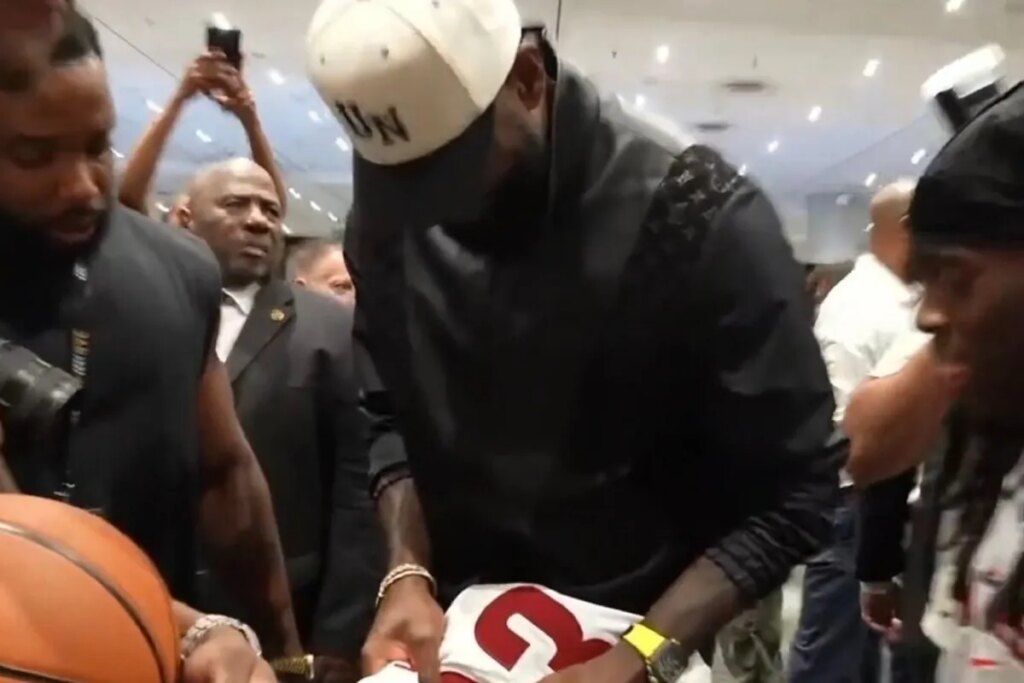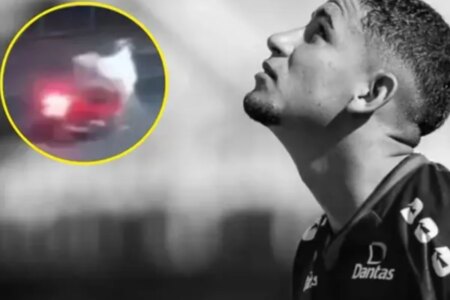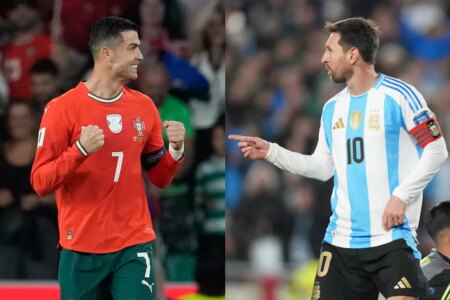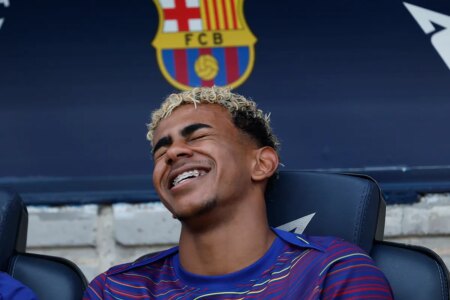LeBron James, Michael Jordan or Tiger Woods on the one hand. On the other, Upper Deck, Fannatics Collectibles or thousands of bounty hunters who stand guard for hours to get autographs from sportsmen or celebrities that they then resell in a thousand different ways. It is a pure business that has been around for many years and is now knocking on the doors of some of these protagonists, such as Lamine Yamal.
The commercial phenomenon comes from the United States as an exclusivity, but this has been done for years in Europe. The mechanism is very simple. The athlete in question was ‘locked’ in a hotel room in exchange for a good amount of money to sign thousands of cards, photos or shirts in exchange for significant amounts of money. Signatures that were then sold in many different ways
In Europe, it was very common to see the same autograph hunters touring hotels in any country with their albums ready for the players to sign five or six or whatever cards or photos they were, which they then resold at a high price. Sergio Ramos was one of the first to speak out after refusing to sign a shirt, as he admitted that it was later auctioned off. Thibaut Courtois has already denounced this problem. “There are people who know that I stop quite a lot and they take shirts or gloves, take a picture while I sign it and put it on sale,” he said during an interview.
Some clubs decided to organize this type of situation
Some clubs decided to organize this type of situation, in an attempt to prevent the player’s signature from becoming a parallel business. The formula of the so-called ‘Meet and Greet’ was invented, an event that, supported on many occasions by commercial companies, serves to organize the signing of autographs and bring fans closer to the protagonists without anything in return.
In the United States, contracts between athletes and companies to ‘privatize’ autographs are commonplace. LeBron James changed companies to get a better deal. After 20 years of contract with the company Upper Deck, a specialist in this field, he switched to Fanatics Collectibles. It is estimated at a $5 million annual deal for signatures on exclusive cards or trading cards.
Barcelona forward Lamine Yamal has joined or is at least negotiating an individual contract to sell his signature on shirts, caps, balls, cards and other products. The young footballer is about to close this commercial agreement with a company specialized in the production of autograph items for sportsmen. Lamine only stops to pose for photos and not to sign autographs.
Although the move may seem absurd, from a commercial point of view it is well received by experts and quite common in a market that is constantly innovating in new sources of income, such as NBA players, who have been selling their autographs on various products for several years.
“It may seem pedantic or unnecessary, but athletes at this level need to not only leverage their time and image in different ways, but also ensure that they are associated with licensed products from their sponsors, club or the confederation of the country they represent. This greater value placed on their autographs, which limits who has them, can also make them valuable items for charities and institutions. This can be bewildering for children who cannot afford an autographed item, but photos, now produced with enormous speed and ease, fill this gap,” says Thiago Freitas, chief operating officer of Roc Nation Sports.
“In the US market, player memorabilia has been part of an industry for decades. While it may seem strange to the European or Brazilian market, charging for autographs is just another way to monetize an idol,” says Ivan Martinho, professor of sports marketing at ESPM.
“Yamal’s decision follows a common business model in the United States: the professionalization of the athlete’s personal brand. The positive side is the creation of a market for authentic and verified collectibles, which allows fans around the world to access a verified item, as well as being a new and obvious source of income for the player,” says Thales Rangel Mafia, marketing manager of Multimarcas Consorcios.
He offers a counterpoint
However, he offers a counterpoint. “Undoubtedly, it is a new way to generate income and professionalize something that has always had a symbolic value. But by transforming the gesture of an autograph, a moment of connection between the fan and his idol, into a product, there is a risk of cooling that relationship. What was once an experience and an emotion becomes a transaction. And this can be costly in terms of image and attractiveness to future sponsors,” observes Wagner Leitzke, director of clubs at End to End.
“I understand innovation and the use of new business models. We live in the attention economy, and the idolatry of global stars must be monetised, of course. Besides the fact that many autograph hunters do so to resell them, the legitimacy of the athlete’s decision to turn the signature into a product makes more sense. I am simply concerned that this does not create opportunities for Yamal (or any athlete) to use his image and privilege to serve children and fans who often cannot afford the dream of such contact. Ultimately, without room for human connection and reciprocal affection, we risk cooling our industry too much,” warns Alexandre Vasconcellos, Flashscore’s regional manager.
Read the full article here











